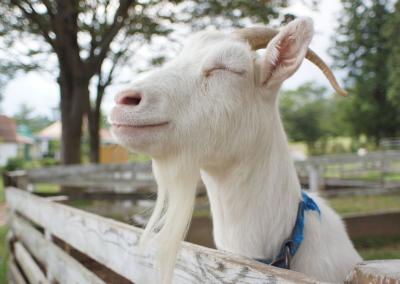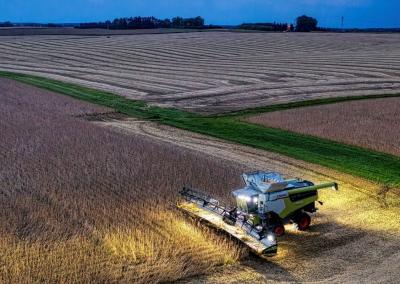Farmers in England will try to grow genetically modified cereals
A project has been launched in England to test precision breeding grain crops on commercial farms for the first time in Europe, Farminguk.com reports.
The test fields of precision-bred wheat have already been harvested, marking the start of a ground-breaking project. The PROBITY platform (A Platform to Rate Organisms Bred for Improved Traits and Yield) has been developed to rate organisms bred for improved yields. The project will test the cultivation and processing of precision varieties of cereals. The results will be translated more rapidly into the sustainable farming sector.
This project is led by the British Farm Innovation Network (BOFIN). It is a three-year, £2.2 million multi-partner project funded by Defra's Farming Innovation Programme, delivered by Innovate UK.
Farmers are encouraged to get involved in the project and discuss precision crops. These plants can be created using gene editing, a widely used technology that allows scientists to make changes to a plant's DNA that are similar to those that occur naturally, but are introduced in a targeted way.
The Genetic Technology (Precision Breeding) Act already allows for the marketing and sale of certain genetically edited plants. Following Brexit, England is currently the only country in Europe where this new material can be grown in farmers' fields.The project will multiply the seeds collected from plots near Norwich in 2025 so that farmers can grow test crops the following year. Two other cereal varieties are being grown in greenhouses at Rothamsted Research Institute and will also be multiplied and tested on farms after harvest this autumn.
The three varieties will be grown on commercial farms and tested and screened by farmers, scientists and food producers to determine their potential. The three grain varieties involved in the project are: wheat, which has improved baking, roasting and processing properties; barley, which produces an energy-rich feed to reduce methane emissions from livestock; and wheat, which has a coarser grain size and promises to increase productivity.
Oxfordshire farmer and BOFIN founder Tom Allen-Stevens said the project is "hugely important" for farming and food production in England. We need to produce more nutritious food with fewer resources and less impact on the environment. Scientists are developing new plant varieties that could help us meet this challenge. The project will help bring these varieties out of the lab and into farmers' fields, where we can fully assess their potential and pave the way for innovation.







































































































